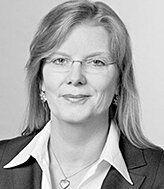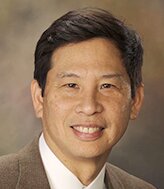Plenary Lecture 1November 10 9:00-10:00
Prof. Birgit Vogel-Heuser
Institute of Automation and Information Systems (AIS),
Technische Universität München
Session Summary
- Title: Cyber Physical Production systems / Industry 4.0- challenges in research and industrial application
- In order to be prepared for future challenges facing industrial production domain, Cyber-Physical Production Systems (CPPS) consisting of intelligent entities which collaborate and exchange information globally are being proclaimed as the 4th industrial revolution. In this context, the service-oriented architecture as well as agents are often proposed. Agent technologies have been studied intensively in academia within the last decades and applications are recently available successfully to the production domain. The applicability of agent technology and smart data for realizing CPPS with real time and dependability requirements is discussed and shown based on selected scenarios. The talk concludes with opportunities and open research issues that need to be faced in order to achieve CPPSs in the context of Industry 4.0.
Biography
Professor Vogel-Heuser conducts research on the development and system evolution of Cyber Physical Production Systems and Industry 4.0, with the aim of improving product quality, the efficiency and consistency of engineering activities and operational availability. She develops methods and tools for integrating the various perspectives of mechatronic systems and phases in the life cycle. Her research projects range from fundamental research in automation to the derivation of requirements from industrial applications and the development of prototype tools.
After graduating in electrical engineering from the Technical University of Aachen (RWTH), Prof. Vogel-Heuser earned her doctorate degree there (1990) in the area of robot programming in mechanical engineering. She acquired industrial experience over a ten year period, including a position as Engineering Director for the Siempelkamp Group. After various professorships (Hagen 1996; Wuppertal 2000; Kassel 2006), she assumed a professorship in the Department of Automation and Information Systems at TUM (2009). She is speaker of the DFG Collaborative Research Centre 768 "Managing cycles in innovation processes - integrated development of product-service systems based on technical products" at TUM and co-initiator of the DFG Priority Programme 1593 "Design for Future- Managed Software Evolution"

Plenary Lecture 2November 11 9:00-10:00
Prof. John Hung
Electrical & Computer Engineering Department
Auburn University
Session Summary
- Title: Industrial Electronics Highlights: 65 Years and Still Growing
- It is said that history helps us understand the world, ourselves, our cultures, and even the forces that shape the future. This morning, we take a quick history tour of industrial electronics technology highlights, as recorded over 60+ years in IEEE Industrial Electronics Society (IES) publications. Along this journey, we will see how industrial electronics community members and technical activities have evolved. Selected contributions from several renowned people are explained, and we also survey the spectrum of today’s IES technical activities. We hope to gain a greater appreciation of our interesting technical world and diverse international community, and also look forward to emerging activities and needs.
Biography
John Y. Hung is a Professor of electrical and computer engineering at Auburn University, U.S.A., president of the IEEE Industrial Electronics Society (2014-2015), and 2016 Director-elect for IEEE Division VI. His technical experiences are in nonlinear systems and control, most recently applied to autonomous vehicles, electric machines, power electronics, and robotics. A Fellow of the IEEE, he has served on the editorial boards of several IEEE research publications, and received recognitions for both research and teaching. Prior to his academic career, he was a design and development engineer in the commercial building automation industry, and also a private engineering consultant. John Hung earned the bachelor degree (University of Tennessee, 1979), master (Princeton University, 1981), and Ph.D. (University of Illinois, 1989), all in electrical engineering. His hobbies include fixing old cars, amateur radio, and playing with his grandson.

Plenary Lecture 3November 11 10:30-11:30
Mr. Takahito Okubo
General Manager
EV and HEV Component Engineering Department
Nissan Motor Co., Ltd.
Session Summary
EV technologies today
The energy saving technology is more and more needed to improve in order to solve the environmental issues like a global warming and an air pollution problem. Automotive industry has been challenging to resolve these issues in terms of developing environmental friendly cars such as Hybrid electric vehicle (HEV) and Battery electric vehicle (BEV).
Nissan announced our policy of “Zero emission leadership” and launched the first mass production EV “LEAF” into the market since 2010.
It’s already around 200 thousands of LEAF in the market today, but it’s only the beginning and we continue our challenges.
Recently, the technologies around EV such as battery technologies, electrical parts technologies, control technologies, for instance, are improved day by day. I will talk about these basic technologies around EV and the further possibilities to create the EV attractiveness which may expand EV market.



